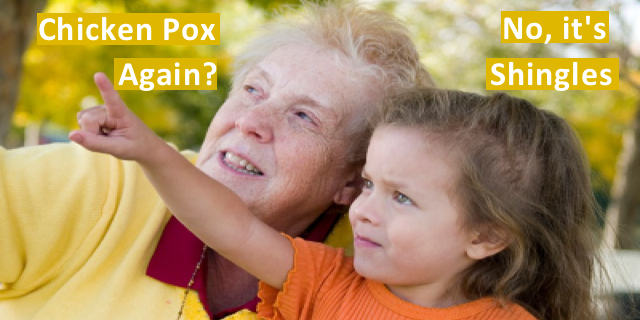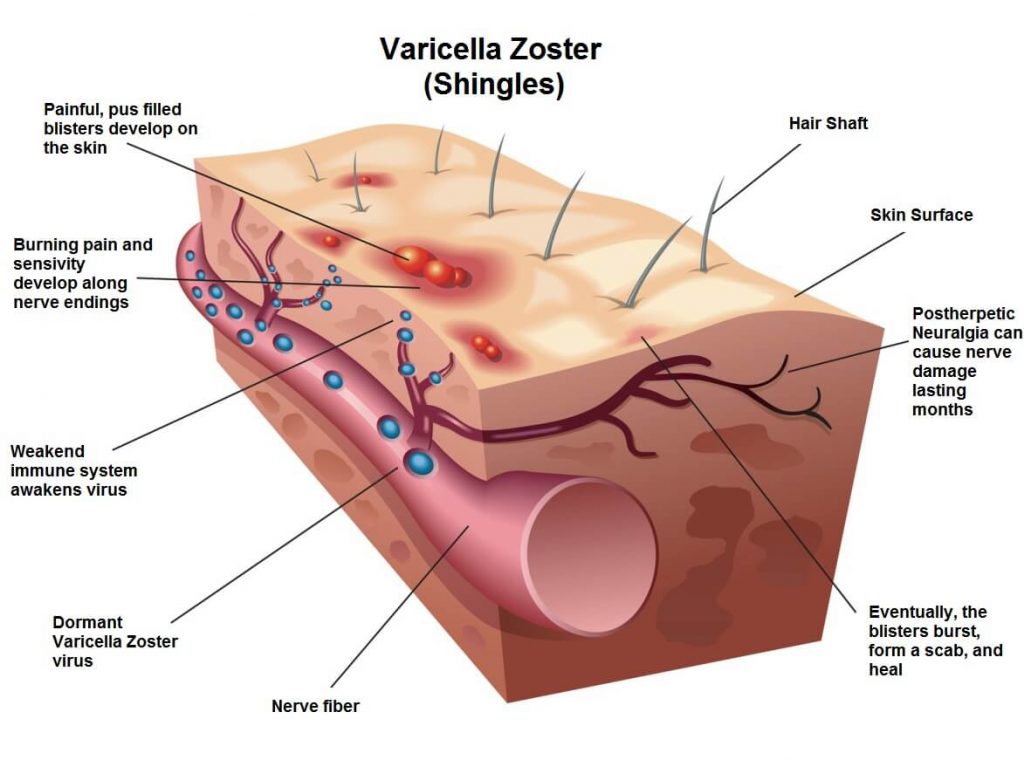If you have had chicken pox, you might get shingles later in life. Shingles is caused by the herpes zoster virus (also called the varicella zoster virus). After you have had chicken pox, the zoster virus stays in your body and lying dormant. For 1 in 3 people in the US, the virus activates and causes shingles.
The symptoms of shingles are pain, itching or tingling in the area where a rash develops. The rash is usually on just one side of the body in a stripe. Other symptoms include headache and fever. One of the complications of the disease is post-herpetic neuralgia which is pain caused by nerve damage in the area where the rash occurred.
There is vaccine that is recommended for people over the age of 60. It reduces the risk of developing the disease by 51%.
Here is an infographic by the Cleveland Clinic which addresses some of the myths about shingles.








If you have had shingles how long do you have to wait to get the vaccine?
According to https://www.vaccines.gov/diseases/shingles/ “There is no specific time that you must wait after having shingles before receiving the shingles vaccine. The decision on when to get vaccinated should be made with your health care provider. Generally, a person should make sure that the shingles rash has disappeared before getting vaccinated.”
I had shingles in my mouth, throat, tongue and ear, last September. I also had some on my upper thigh a week or so earlier, which I didn’t recognise as shingles, both confirmed by swabs. Unable to eat or drink properly, I lost 10kg in weight and was admitted to hospital dehydrated. I now have nerve damage to my throat and mouth, resulting in poor saliva production, reduced taste sensations and a very persistent cough, all of which, I’ve been advised, could last 12-18 months. The vaccine is a good option!
Is it possible that a ganglion get inflamate because of the shingles? How long can take to feel good again? When is consider to visit a doctor again?
You should go to see your physician if you are having long term symptoms. Post herpetic neuralgia is when the pain of shingles continues for three months or longer after the rash. There is a description of this here https://www.ninds.nih.gov/Disorders/Patient-Caregiver-Education/Hope-Through-Research/Shingles-Hope-Through-Research which may give you more information. I hope that you begin to feel better, Kathleen